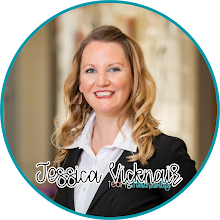Hi Friends! It's Nicole here from Why Pencils Have Erasers and I'm pumped to be blogging at The Punchbowl today.
In the primary classroom, read aloud is such an important part of our day. It is a time for exploring possibilities, building connections between every area of our content instruction, reviewing, previewing, and so much more. Read alouds encourage even our youngest students to question, discuss, build on prior knowledge, and expand their thinking. One of my favorite ways to use our daily read aloud time is to explore social thinking themes with my kiddos. Read below to find my top three can't-live-without-em picks for creating a thoughtful classroom community!
Now picture this: due to our restrictive scheduling, the only time I could build read aloud into our schedule this year was during snack. The me of September felt that surely, this could never work. How could I expect my kiddos to munch their goldfish, peel their clementines, and heck, even remember to eat all while thoughtfully considering the pages in front of them? Would this valuable time be squashed into nothing more than a 15 minute filler? Turns out, I couldn't have been more wrong. Not only are my kids more focused and attentive than ever, they actually eat more without the distractions of talking with their table mates (cue: less nervous emails from parents worrying that Jack/Samantha/Liam/Elizabeth/Jonathan/Ellie's snack box didn't come home quite empty enough).
Now, their mouths might be full of seaweed when they ask me questions about certain characters, and occasionally someone spills their chocolate milk because, well, books are just so interesting, but our snack time conversations have become one of my favorite parts of the day. My first grade kiddos have proven that they really are quite skilled at multi-tasking, and I often watch in awe as they quickly take concepts from the books we read and apply them to classroom activities and interactions. So, proud teacher aside, here are my top three picks for building social thinking skills:
1. The Blanket Statement
I use Jo Ann Stover's book, If Everybody Did, each year to form our classroom rules. Not only is it hilarious, but it also gives my first graders a clear visual about why it actually is important to follow the rules. The best part? It provides an excellent point of reference for the ENTIRE YEAR in situations like:
"Isaac are you putting those legos in your mouth? Imagine if everybody did."
"Olivia, imagine if everybody used the markers like they were trying to stab them all the way through the table."
"Is that your snack trash on the floor, Naomi? Imagine if everybody did that!"
The possibilities are endless.
2. No More Interruptions
Julia Cook is essentially the Cesar Milan of social thinking. If you haven't yet purchased any of her books for your classroom, then I must insist you stop reading immediately and put that Amazon Prime account to good use. Though many of her titles play a key role in my social thinking instruction, I truly couldn't live without My Mouth Is A Volcano.
Wouldn't it be amazing to have a way to thoughtfully, non-verbally, and without distraction remind students to raise their hands? This book provides the language for just that. I read this book during the first six weeks of school every year, then create the key principles into an anchor chart like this:
This hangs directly next to my easel in our class meeting area and for all those moments when someone calls out ("MRS. Z!" "THE ANSWER IS 12!" "I WENT ICE SKATING THIS WEEKEND!") I simply (and silently) point to the chart as a reminder. I don't have to stop instruction or publicly remind students to raise their hands. Students are assured that I always still want to hear what they have to say, and our lessons can continue on. Game. Set. Match.
3. Grow Your Brain
If my classroom had a slogan, it would be 'grow your brain'. Why do we work hard during math partners? To grow our brains. Why build our Read to Self stamina? To grow our brains. Why practice building, rebuilding, and otherwise reciting all those trickster words? (I'm looking at you, was.) You guessed it, brain growing.
JoAnn Deak's book, Your Fantastic Elastic Brain provides students with a scientific, but easy-to-follow explanation about why making mistakes, bring brave, working hard, and trying new things all help to stretch, strengthen, and grow your brain to help you be your best self. I find myself using this book as a tool to encourage students in almost every part of our school day as a way to provide positive reinforcement, motivation, or encouragement. In fact, many of my students report going home with a 'tight head' from all their brain growing. I always count that as a win.
What are your favorite read alouds to build social thinking skills? I can't wait to hear about them! My Amazon Prime account thanks you in advance…
Thanks for stopping by!
Read Alouds to Support Social Thinking
K-2,
Literacy,
Read Alouds,
reading instruction,
Social Learning,
WhyPencilsHaveErasers
27 February 2016
Posted by
Jessica
 I'm Jessica, a mom, baker, wannabe chef, Disney enthusiast, crafter, and educator!
I am mom to one daughter, Carly and one fur baby, Lilo!
I'm Jessica, a mom, baker, wannabe chef, Disney enthusiast, crafter, and educator!
I am mom to one daughter, Carly and one fur baby, Lilo!
loading..
Subscribe to:
Post Comments (Atom)
Powered by Blogger.



















No comments